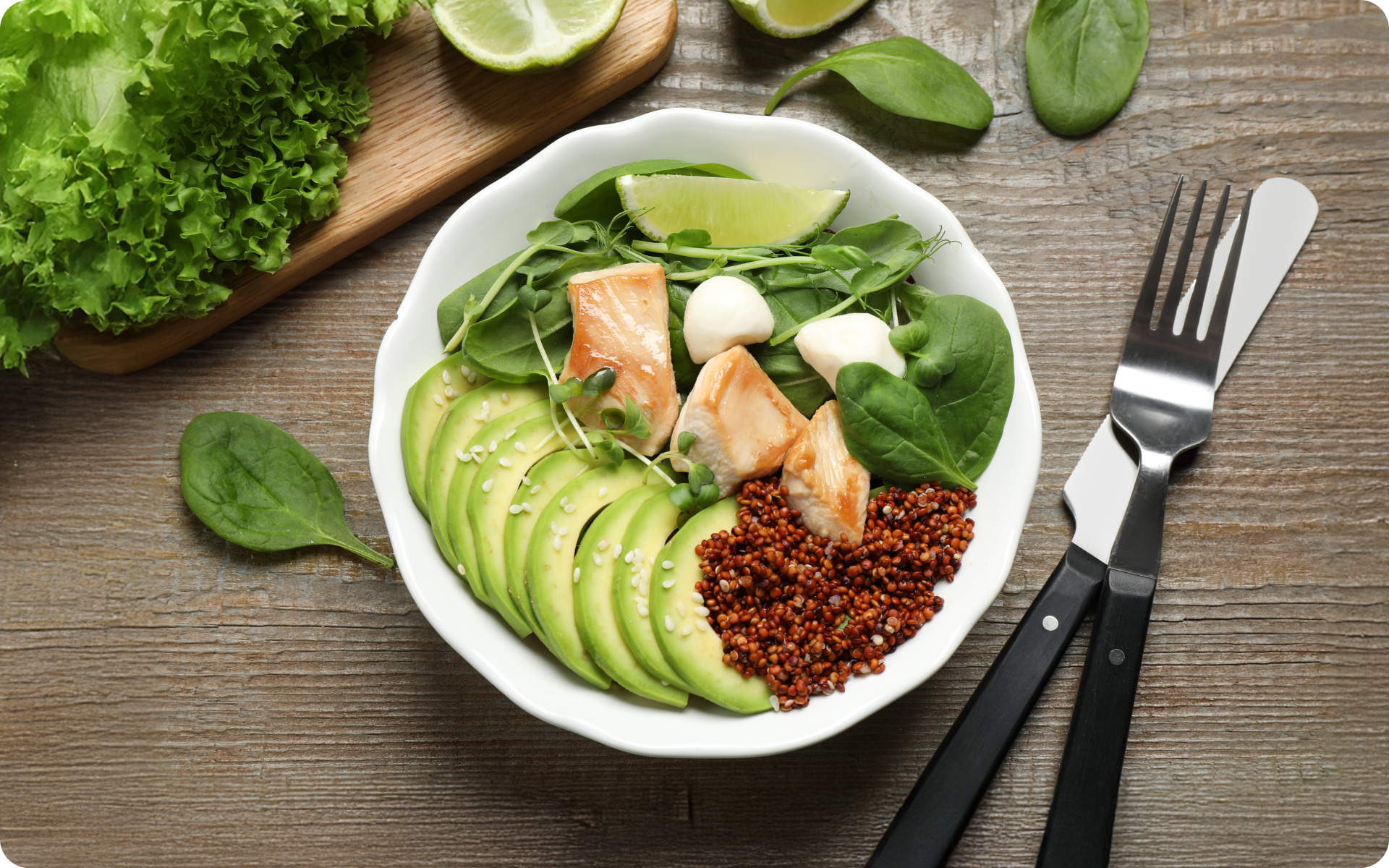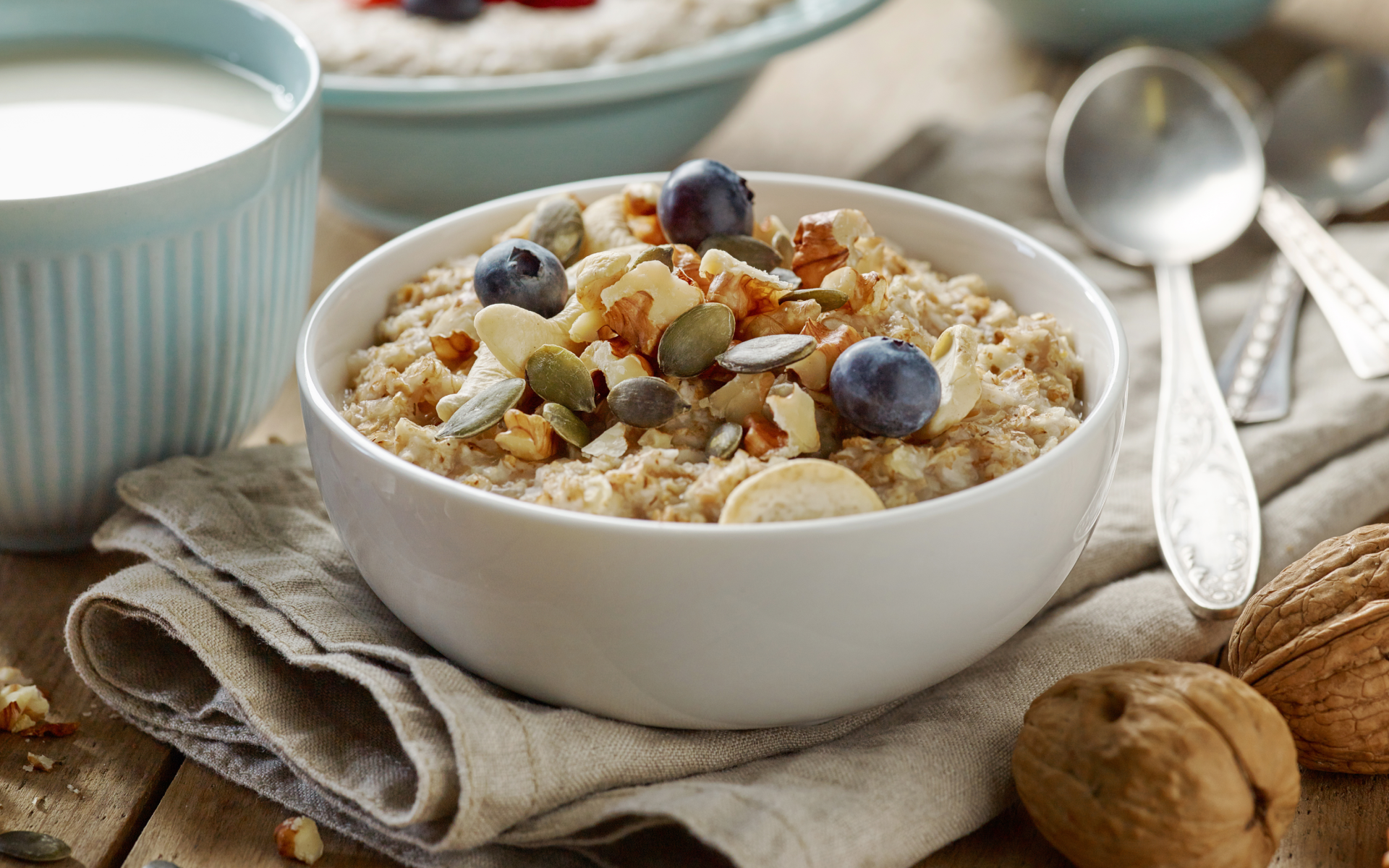“Detox” is a popular buzzword in the dieting world. If you’ve ever felt tired, sluggish, or experienced unexplained weight gain, someone may have recommended that you go on a cleanse to get rid of the toxins in your body.
But before you start the 3-day liquid diet detox, you need to know whether it works. Most importantly, you need to find out if it’s safe to go without food for three days.
Here’s the truth about this diet according to science.
What Is the 3-Day Detox Diet?
This is a modified fast where you only drink liquids for three days. You’re generally supposed to consume fruit and vegetable juices during this time. Some 3-day detox diet plans also allow you to consume smoothies made from a combination of “detoxifying” ingredients.
Although the three-day version is all about juicing, there are different variations of this diet, depending on how long it lasts. Some last up to a month and may involve:
- Fasting for a short period
- Consuming only fruits and vegetables
- Cutting out wheat and dairy foods
- Consuming a limited range of foods
- Avoiding caffeine and alcohol
The idea behind this diet is that you need to periodically clear the “toxic waste” from your body in order to stay healthy. In particular, you may be tempted to detox after overindulging during the holidays and special occasions.
Proponents of the cleanse claim that it helps reduce bloating, inflammation, fatigue, and water retention (1). Those who do it will often experience rapid weight loss due to consuming drastically fewer calories than normal for three days.
Some of them may even exhibit benefits such as increased energy levels and better sleep patterns. These are sometimes claimed to be caused by an increase in nutrients from juicing fruits and vegetables, along with releasing toxins stored in fat cells (2).
However, none of these claims are backed by scientific evidence. In fact, your body eliminates toxins all on its own. There is no need to fast or drastically change your eating habits to support this process. In addition, detoxes and cleanses like this aren’t safe for everyone.
How Much Weight Can You Lose on a 3-Day Detox?
Most detox diets claim you can lose anywhere from 5 to 10 pounds in just 3 days. Exactly how many pounds you will lose depends on individual factors such as metabolism, current weight, the specific detox plan you follow, and your overall health.
It’s important to keep in mind that any significant weight loss achieved during a short-term detox is likely due to water weight rather than fat loss.
Water retention can contribute to temporary weight gain, especially if you consume high amounts of sodium or carbohydrates (3). A 3-day detox that involves cutting out these types of foods can lead to a quick drop in weight, but this weight loss may not be sustainable in the long term.
If you wish to free yourself from all the extra pounds that have been weighing you down for way too long, start using the BetterMe: Health Coaching app and overhaul your entire life!
Some experts suggest that rapid weight loss through detoxes and other extreme diets can actually have negative effects on your metabolism and overall health (4). Instead of focusing on short-term results, it’s important to adopt healthy lifestyle habits for sustainable weight loss.
The most effective way to lose weight and maintain a healthy body is through a balanced diet and regular exercise (5). A 3-day detox may serve as a jumpstart towards healthier habits, but it should not be relied upon as the sole method for losing weight.
Furthermore, weight loss is not the only indicator of a healthy body. Your overall well-being, including factors such as energy levels, health markers such as blood pressure and cholesterol, and mental health, should also be taken into consideration.
How to Do a 3-Day Detox Diet for Weight Loss
There are many versions of the detox diet. You may prefer one over another due to dietary restrictions or ingredient preferences. Here’s a sample of a 3-day detox plan courtesy of VegNews (6):
For the next three days, eliminate all sweets, alcohol, sodas, and processed food from your diet. You’ll also avoid grains, gluten, and animal products. Replace them with green juices, smoothies, or plant-based meals.
The only sweetener that is recommended is liquid stevia which is natural and has no glycemic impact. Stay well hydrated by drinking lots of water.
You’ll start your day with a probiotic supplement on an empty stomach with a glass of water. This is designed to aid digestion and replenish good gut bacteria. You’ll also drink a glass of lemon juice for digestion.
You’ll then follow this meal plan:
- Breakfast – Green juice (homemade or store-bought)
- Lunch – Nutrient-dense green smoothie (homemade)
- Snack – 1 cup raw vegetables (cucumber slices, celery, bell peppers, or carrots) or a half avocado mashed with salt and lemon
- Dinner – Green salad, baked sweet potato, and roasted broccoli
Here are some juice and smoothie recipes you can use during the liquid detox:
Grapefruit Smoothie (7)
The grapefruit smoothie comes packed with lots of nutrients that’ll leave you feeling good in no time. Here’s how to make it:
Ingredients:
- 2 cups of frozen pineapple chunks
- ⅓ cup of Greek yogurt
- 1 tablespoon of coconut oil
- 1 Winter Sweetz red grapefruit
- ¼ inch knob of fresh ginger
- Segmented grapefruit, berries, and granola for the topping
Directions:
- Segment your grapefruits over a large or medium bowl to collect all their juice. Leave 2-3 segments to be used for the topping.
- Next, add the grapefruit juice, Greek yogurt, frozen pineapple, segmented grapefruit, fresh ginger, and coconut oil into a blender. Now blend until the mixture forms a smooth texture.
- Taste to establish the thickness of the smoothie. If it’s still too thick, add some non-dairy milk.
- Serve in a bowl or in two glasses, add your favorite toppings, and enjoy.
1 serving of this smoothie contains 37g carbohydrates, 7g fat, 3g fiber, 28g sugar, and 234 calories.
Recipe courtesy of eatingbirdfood.com
Read more: Best Drink To Lose Weight Fast: Healthy Fat-Blasting Beverages To Try Today!
Keto Avocado Smoothie (8)
Not many smoothies can beat this keto avocado smoothie. It comes loaded with detox ingredients such as turmeric and ginger, which are high in antioxidants and anti-inflammatory compounds. It’s also free of added sugar, high in healthy fats, and delivers a rich creamy flavor.
Here’s how to make it:
Ingredients:
- ½ avocado (3-4 oz)
- ¾ cup of full-fat coconut milk
- ¼ cup almond milk
- 1 teaspoon of freshly grated ginger (about a ½-inch piece)
- ½ teaspoon of turmeric
- 1 teaspoon of lemon or lime juice (you can add more to the taste)
- 1 cup of crushed ice or more if you fancy a thicker smoothie
- Sugar-free sweetener to taste
Directions:
- Put the avocado, coconut milk, almond milk, grated ginger, turmeric, and lemon or lime juice in a blender. Switch your blender to low speed and blend until the mixture gets a smooth texture.
- Next, add the crushed ice and sweeter, then blend the mixture at high speed until smooth.
- Now taste and adjust the sweetness levels using the sweetener to your liking.
- Add a pinch of black pepper to curcumin to make the turmeric more bioavailable. Doing this won’t affect its taste.
1 serving of this smoothie contains 6.9g carbohydrates, 1.7g protein, 22.4g fat, 2.8g fiber, 1.14g sugar, and 232 calories.
Recipe courtesy of lowcarbmaven.com
For more insights on how diet can help cleanse the body, take a look at our blog post – 7-Day Detox Diet Plan.
Does Fasting for 3 Days Detox Your Body?
There is no scientific evidence to support claims that fasting specifically for 3 days can effectively detoxify the body. The body naturally detoxifies itself through the liver, kidneys, and other organs, and doesn’t need fasting to do so. Some detoxes actually cause the body harm (9)
However, certain aspects of these plans may help support the body’s detoxification processes (10). For example, if your 3-day detox involves eliminating alcohol, it can give your detoxification systems a break and allow them to function more efficiently, but you don’t need a full-on detox to take a break from alcohol for a while.
If your detox plan includes plenty of water and nutrient-dense foods such as fruits, vegetables, lean proteins, and whole grains, it can also provide your body with the necessary nutrients to support its detoxification functions. Again, this doesn’t really require a detox, just some positive long-term lifestyle changes.
If your 3-day detox includes some physical activity, it can also help improve circulation and lymphatic drainage, which are important processes for detoxification.
So, while fasting for 3 days may not directly detoxify the body, certain aspects of a well-designed detox plan that includes healthy and nourishing foods and some physical activity can support the body’s natural detoxification processes. However, it’s better to incorporate these healthy habits into your lifestyle in the long term, rather than as part of a 3-day crash diet.
Learn about the benefits and potential risks of a Fasting Workout in our previous blog post.
Read more: Fast For 3 Days: Tips On How To Complete Your 3-Day Fast With Little To No Effort
Does Your Body Need a Detox?
Yes, your body needs to detox. Your body accumulates potentially harmful particles from food and the environment. These include organic pollutants that are present in food, soil, and water (11). It also includes alcohol and the byproducts of metabolism.
However, your body doesn’t need a 3-day detox diet. As long as your organs are functioning correctly, your body is capable of filtering and eliminating any waste and byproducts.
How Does Your Body Get Rid of Toxins?
Your body is perfectly capable of doing a detox on its own. The only help it needs is for you to follow a nutritious balanced diet and overall healthy lifestyle. The body’s detoxification system includes the following:
Skin
The skin acts as a barrier between the inside of your body and the outside world (13).
Respiratory System
The human respiratory system protects the body from inhaling toxins. One way it does this is by trapping large particles in the trachea, while smaller particles are cleared out of the airways through mucus (14).
Immune System
This system of cells and molecules is designed to recognize foreign substances and eliminate them from the body. Components of this immune system are at work in blood plasma and lymph, but they can also be found inside tiny gaps between cells (15).
Liver
The liver performs many vital functions to protect the human body from harmful substances.
It detoxifies and eliminates chemicals through a process that is known as metabolism by first neutralizing them with metallothioneins before excreting them in bile, which is stored in your gallbladder until being pumped into the small intestine for digestion. The liver also produces enzymes that combat drug toxicities and regulate the breakdown of medications such as cholesterol-lowering statin drugs or blood thinner medications (16).
Kidneys
Kidneys work like filters that clean the blood. They remove wastes, excess water, and some extra salt from the bloodstream, and these unwanted chemicals or toxins are excreted in the urine (17).
Colon
The colon eliminates byproducts from your body via bowel movements (18).
Reasons why BetterMe is a safe bet: a wide range of calorie-blasting workouts, finger-licking recipes, 24/7 support, challenges that’ll keep you on your best game, and that just scratches the surface! Start using our app and watch the magic happen.
What Does Research Say About the Detox Diet?
Not many studies have been conducted on detox diets. However, the few that have been done have been of low quality with study design problems, few participants, or a lack of peer review (evaluation by other experts to ensure the quality).
According to one scientific review from 2015, there is no evidence that supports detox claims that detox diets (19):
- Flush waste from your body
- Purify your blood and improve circulation
- Break down fats and eliminate cellulite
Some proponents of detoxification claim you need to do this type of fast once a year to keep your body healthy. However, research has shown that treatments that include fasting or drastically reducing calories can disrupt your metabolism and cause (20):
- Lack of energy
- Mood swings
- Loss of muscle tissue
- Disrupted hormone production
- Decreased mental performance
Is the Detox Diet Safe?
Supplements, such as detox tea or pills, aren’t FDA-approved. Therefore, they don’t undergo the same scrutiny to ensure safety.
The U.S. Food and Drug Administration (FDA) and Federal Trade Commission (FTC) have taken action against several companies selling detox/cleansing products (21, 22). Some of these products:
- Contained unapproved and potentially harmful ingredients
- Were marketed with false claims
- Were marketed for unapproved uses
- Exposed people to harmful bacteria
Juices that are used in “detoxes” and “cleanses” that haven’t been pasteurized or treated to kill harmful bacteria can be toxic. They can cause serious illnesses in children, elderly people, and those with weakened immune systems.
Sudden Weight Regain
Diets that severely restrict calories or certain types of food from your diet don’t typically lead to lasting weight loss and may not provide all the nutrients required by your body.
Although it can lead to rapid weight loss, you’re losing mostly water, muscle, and not much fat. Your body may then go into starvation mode after the fast is over, which may cause you to gain back any weight that was lost and sometimes more (23).
Weakened Immunity
Cutting out certain foods could also result in vitamin deficiencies (24). The longer you do the detox, the longer you’re going without enough vital nutrients.
Fasting for long periods can weaken your immune system and make you more vulnerable to diseases, particularly when it’s done very often or for an extended period.
People with Health Conditions
People with conditions such as diabetes, blood sugar disorders, low blood pressure, cancer, heart disease, liver problems, or kidney failure shouldn’t try a detox diet due to its potential risks.
Such people are particularly prone to dehydration due to not consuming enough fluids (remember the body needs between 2-3 liters per day). They are also at an increased risk of gallstones when cutting out certain foods (9).
Electrolyte Imbalance
Drinking large quantities of water and herbal tea and not eating any food for several days in a row could lead to dangerous electrolyte imbalances (25). Some plans, such as the 3-day green tea detox diet, can have this side effect.
The FDA has also issued statements warning that many slimming teas contain diuretics (21). Diuretics can lead to (26):
- Dehydration
- Electrolyte loss or fluctuations, which can cause cardiac arrhythmia and death
- Muscle cramps
- Diarrhea
- Fluid loss followed by fluid regain
On the third day of a detox, many people experience a mix of physical and mental changes. Individual experiences are subjective and will vary. Here’s what some people report: A 3-day cleanse may lead to some temporary weight loss, including a reduction in belly bloat, but it’s unlikely to result in significant or lasting belly fat loss. Most of the weight lost during such a short cleanse is typically water weight and not fat. Cleanses often involve consuming drastically fewer calories and cutting out high-sodium foods, which can reduce bloating and make your stomach appear flatter. However, losing actual belly fat requires a longer-term approach that includes a balanced diet, regular exercise, and lifestyle changes. For sustainable fat loss, it’s best to focus on healthy eating habits, regular physical activity, and maintaining a calorie deficit over time. Always consult a healthcare professional before you start any cleanse or diet plan to ensure it’s safe and suitable for you. It’s important to focus on foods that support digestion and promote gut health during a 3-day gut cleanse. Here’s a general guide on what to eat: Avoid ultra-processed foods, added sugars, alcohol, and excessive caffeine during the cleanse. Always listen to your body and make adjustments based on how you feel. In addition, you should consult a healthcare professional if you have any concerns. Detoxifying your body in just 24 hours is a bit of a stretch, as true detoxification is a continuous process that is handled by your liver, kidneys, and other organs. However, you can take steps in a day to support your body’s natural detox processes and feel a bit more refreshed: While these steps can help you feel better and support your body’s natural functions, they won’t result in a complete detox in just one day. To promote overall health and well-being, a longer-term approach is necessary.Frequently Asked Questions
What happens on day 3 of a detox?
Will a 3-day cleanse help you lose belly fat?
What should I eat during a 3-day gut cleanse?
Can I detox my body in 24 hours?
The Bottom Line
It’s better to focus on eating a balanced diet that includes more fruits and vegetables rather than going on a detox diet. If you’re trying to lose weight, try exercising more and eating moderately fewer calories, rather than going on a detox diet. Remember that any weight loss from a detox or crash diet will most likely not be permanent as you’ll regain it once the fast is over.
DISCLAIMER:
This article is intended for general informational purposes only and does not serve to address individual circumstances. It is not a substitute for professional advice or help and should not be relied on for making any kind of decision-making. Any action taken as a direct or indirect result of the information in this article is entirely at your own risk and is your sole responsibility.
BetterMe, its content staff, and its medical advisors accept no responsibility for inaccuracies, errors, misstatements, inconsistencies, or omissions and specifically disclaim any liability, loss or risk, personal, professional or otherwise, which may be incurred as a consequence, directly or indirectly, of the use and/or application of any content.
You should always seek the advice of your physician or other qualified health provider with any questions you may have regarding a medical condition or your specific situation. Never disregard professional medical advice or delay seeking it because of BetterMe content. If you suspect or think you may have a medical emergency, call your doctor.
SOURCES:
- Clinical effects of colonic cleansing for general health promotion: a systematic review (2009, pubmed.ncbi.nlm.nih.gov)
- Detox diets for toxin elimination and weight management: a critical review of the evidence (2015, pubmed.ncbi.nlm.nih.gov)
- Why Am I Retaining Water? (2022, webmd.com)
- Risks Associated With Excessive Weight Loss (2024, ncbi.nlm.nih.gov)
- Weight loss – a healthy approach (2024, betterhealth.vic.gov.au)
- The Three-Day Detox Plan Anyone Can Do (2024, vegnews.com)
- Grapefruit Smoothie (2021, eatingbirdfood.com)
- KETO AVOCADO SMOOTHIE WITH COCONUT MILK, GINGER, AND TUMERIC (n.d., lowcarbmaven.com)
- “Detoxes” and “Cleanses”: What You Need To Know (2019, nccih.nih.gov)
- Effects of the Dietary Detoxification Program on Serum y-glutamyltransferase, Anthropometric Data and Metabolic Biomarkers in Adults (2016, ncbi.nlm.nih.gov)
- Association of Exposure to Persistent Organic Pollutants With Mortality Risk (2019, ncbi.nlm.nih.gov)
- In brief: How does skin work? (2022, ncbi.nlm.nih.gov)
- In brief: How do lungs work? (2023, ncbi.nlm.nih.gov)
- The immune system (2016, ncbi.nlm.nih.gov)
- Physiology, Liver (2023, ncbi.nlm.nih.gov)
- Physiology, Renal (2023, ncbi.nlm.nih.gov)
- Physiology, Large Intestine (2022, ncbi.nlm.nih.gov)
- Detox diets for toxin elimination and weight management: a critical review of the evidence (2015, pubmed.ncbi.nlm.nih.gov)
- INTERMITTENT FASTING AND HUMAN METABOLIC HEALTH (2015, ncbi.nlm.nih.gov)
- Tainted Weight Loss Products (2021, fda.gov)
- Detox diets (n.d., usa.gov)
- Reducing Calorie Intake May Not Help You Lose Body Weight (2017, ncbi.nlm.nih.gov)
- A Review of Micronutrients and the Immune System-Working in Harmony to Reduce the Risk of Infection (2020, ncbi.nlm.nih.gov)
- Hypokalaemia and drinking green tea: a literature review and report of 2 cases (2016, ncbi.nlm.nih.gov)
- Diuretics (2023, mayoclinic.org)













